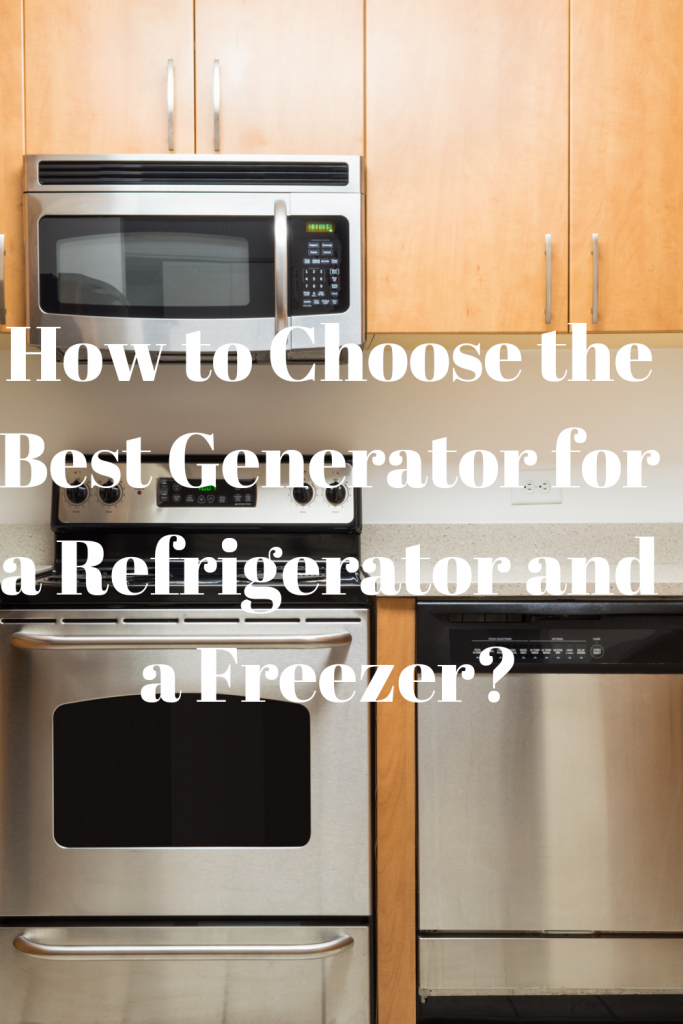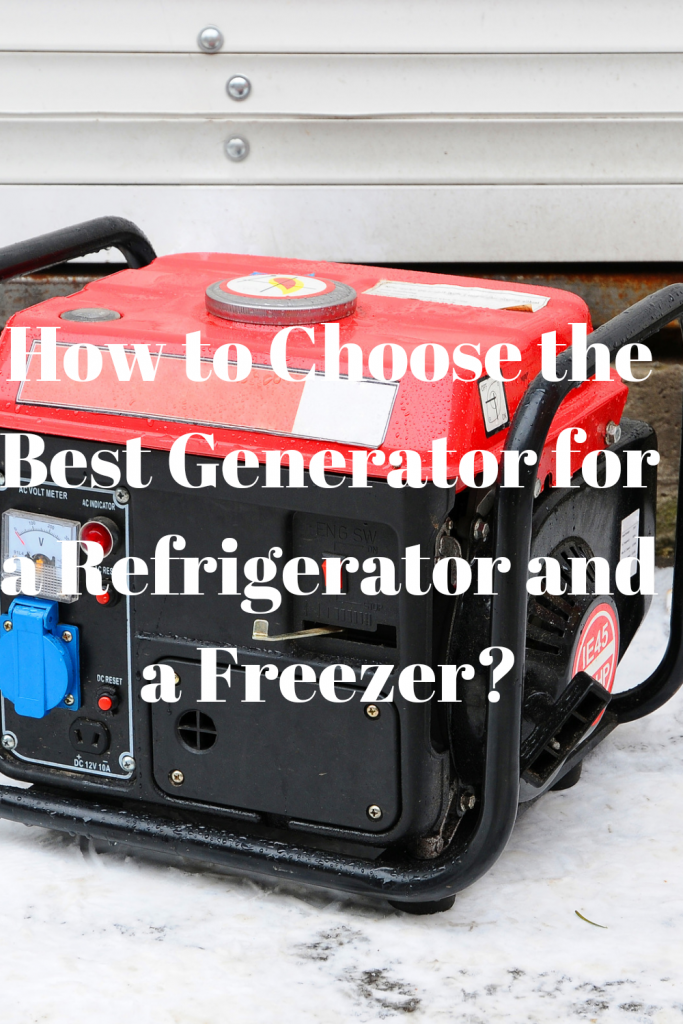Best Generator for a Refrigerator and a Freezer Overview
If you want to start your fridge and freezer with a portable generator, you need to determine the power requirements of your appliances.
A refrigerator requires around 1.5 times its operating wattage to start its compressor motor. To figure out the proper wattage required, check the name tag of your appliance and get a plug-in power meter. Alternatively, you can use a generator that can start up to three appliances at the same time.

First, determine the amount of power you need to run your appliances. The average refrigerator and freezer each consume approximately 1,600 watts. A 2,000-watt generator can provide that much power. However, a 2,000-watt generator is only 500 watts efficient for a 2,000-watt refrigerator. A 3,000-watt generator is recommended for all mini-fridges, including the greenest Energy Star-rated models.
If you plan to run a freezer and a fridge at the same time, you’ll need a 2,000-watt generator. A smaller model will not be enough to run these appliances, while a large one can provide a constant supply of power for both appliances. Ideally, a generator should be at least 1200 watts, but don’t be afraid to increase it if necessary.
Can a 5000 Watt Generator Run a Refrigerator and Freezer?
A 5,000-watt generator can power many different appliances. You can use it for small appliances like a microwave or a fridge, or for larger items like a refrigerator and freezer. It will depend on the type of appliances you’re running, but it’s an ideal power threshold for homes and small businesses. You can even use it to power a large RV. You’ll need to pair the appliances carefully, though.
A 5,000-watt generator is capable of running basic appliances, such as a refrigerator and a freezer. A fridge and freezer, however, need more power than this. The fridge will require 700 watts to run, and 1200 watts of surge power to work. Other common appliances to run on a 5000 w generator include a coffee maker, toaster, and space heater.
You should check the power requirements of your appliances to determine their power demands. A 5,000-watt generator will support a number of standard home appliances. For example, a 5000-watt generator will power a refrigerator and freezer, but a normal refrigerator and freezer will require at least 3000 w to run. So you should consider all of these factors when determining the amount of power your appliances need.
You should also check the wattage requirements of your appliances. A 5000-watt generator can support a limited number of appliances, but they are not capable of powering a refrigerator and a freezer. If you are not sure about the wattage requirements, you can use the EnergyBot tool to compare energy rates and find the best option for your needs. Once you have a list of appliances you plan to use, you can start your generator and start the appliance.
A 5,000-watt generator is not enough to power all of your appliances. A refrigerator needs at least 800 watts of continuous operation, and a freezer needs at least one thousand watts. It is recommended that you only run a refrigerator and freezer at the same time if your power generator can supply all of your appliances. Otherwise, you’ll be using a faulty unit.
Before you purchase a 5000-watt generator, you should determine the wattage of each appliance. A refrigerator needs about 800 w for continuous use, while a freezer needs around 1,000 w for periodic surges. For the same reason, you should also determine how many lights you need. Keep in mind that a 5000-pound refrigerator will need around 750 volts of power to run.
Can a 2000-Watt Generator Run a Fridge and Freezer?
When using a generator, it is important to note that refrigerators and freezers are the most power-hungry appliances. The average fridge requires 1500 watts to run, and it can run at a lower wattage when it is running. The wattage that a compressor requires depends on the size of the compressor and its capacity. A fridge with a freezer is also a higher power user.
A standard deep-freezer needs a separate outlet, which must have the corresponding rating plate. The electrical supply for the deep-freezer must be 115V AC and 15 or 20-amp fused. The generator must also be grounded. A 2000-watt generator is capable of running a 500-watt deep-freezer, a 650-watt microwave, and a few lights. However, if you need to run your refrigerator and freezer at the same time, you will need a generator with more wrath.

A 2000 watt generator is not enough to power your refrigerator and freezer. The power output of a 2000-watt generator is limited to running a deep-freezer, a one-element electric stove, and a few lights. The average electric range uses the full 2000-watts of its generator. Therefore, if you’re using a 2000-watt generator to power your appliances, it’s best to purchase a 3000-watt generator.
Will a 1000-Watt Generator Run a Fridge and Freezer?
Buying a generator is a great way to get some extra electricity when your home is out of power. Oftentimes, they come with a 1000-watt capacity, which is enough for a few small appliances, but not for your entire kitchen. You can also buy a 1000-watt generator that is powerful enough to run a refrigerator and freezer.
A thousand-watt generator will run some small appliances, such as a drill that is about a quarter-inch in diameter, a battery charger for cordless tools, and a portable nail gun that has a built-in compressor. However, a typical air conditioner and refrigerator require at least one and a half times the power of a thousand-watt generator. Fortunately, it can run a mini-fridge, which will keep your food cold.

When buying a generator, remember that a thousand-watt unit isn’t enough to run a fridge and freezer. In fact, a 1000-watt generator isn’t even powerful enough to power a typical refrigerator and freezer.
A thousand-watt unit can run a few smaller appliances, including a 1/4” drill, battery charger for cordless tools, and portable nail gun with a built-in compressor.
A 1000-watt generator can only run standard light bulbs, which can draw as much as 60 w. For your home, it’s not enough to run your standard refrigerator. This device requires at least one and a half thousand volts of electricity. Read about generator safety tips.
